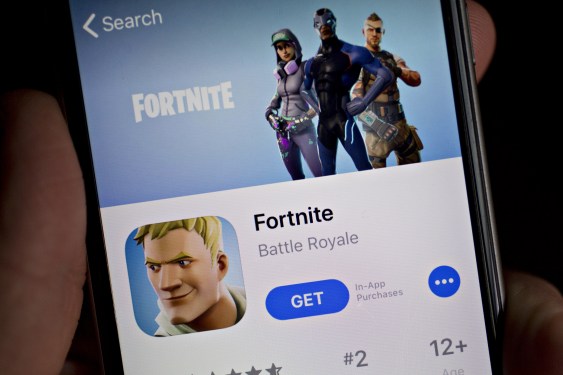In a significant development in the ongoing court battle between Fortnite maker Epic Games and Apple, Epic Games has announced its intention to appeal last week’s ruling by U.S. District Judge Yvonne Gonzalez Rogers. The ruling, which denied Epic Games’ request for a permanent injunction against Apple, has been hailed as a victory by Apple, but Epic Games’ founder and CEO Tim Sweeney disagrees.
The Ruling: A Mixed Bag for Both Parties
Last week’s ruling was seen as a mixed bag for both parties. On one hand, the judge agreed with Apple’s position that the company is not in violation of antitrust law. On the other hand, the judge did rule that Apple must allow developers to add links to alternative payment mechanisms, which could potentially give Epic Games and other developers more flexibility in terms of monetization.
However, the ruling was not as sweeping as Epic Games had hoped. The judge defined the relevant market for the case as "digital mobile gaming transactions," which some have argued is a narrow definition that does not accurately reflect the broader ecosystem of app stores and payment systems.
Epic Games’ Decision to Appeal
Despite the mixed nature of the ruling, Epic Games has announced its intention to appeal. In a statement on Twitter, Tim Sweeney hinted at the company’s plans to continue fighting, saying "We will fight on." The full extent of the appeal is not yet clear, but it is likely that Epic Games will argue that the judge erred in defining the relevant market and that Apple’s actions do indeed constitute monopolistic behavior.
The App Store and Alternative Payment Mechanisms
One of the key issues at stake in this case is the App Store and alternative payment mechanisms. Epic Games has long argued that Apple’s 30% commission on in-app purchases is excessive and anti-competitive, and that developers should be allowed to use their own payment systems.
Apple, on the other hand, has argued that its commission is necessary to maintain the quality and security of the App Store. The company has also pointed out that many developers have chosen to continue using Apple’s payment system despite the high fees.
The Impact on Developers
For developers, the ruling could potentially have significant implications. While the judge did rule that Apple must allow developers to add links to alternative payment mechanisms, it is not clear how this will affect the broader ecosystem of app stores and payment systems.
Some have argued that the ruling could lead to a proliferation of alternative payment systems, which could give developers more flexibility in terms of monetization. Others have raised concerns about the potential for fragmentation and confusion among users.
The Path Forward
As Epic Games prepares to appeal the ruling, it is likely that the case will continue to be a major point of contention between Apple and other developers. The outcome of the appeal could potentially have significant implications for the broader tech industry, including the way in which app stores and payment systems are structured.
The Market Definition: A Key Issue
One of the key issues at stake in this case is the definition of the relevant market. Epic Games had argued that Apple’s actions constitute monopolistic behavior in a broader market, but Judge Gonzalez Rogers defined the relevant market as "digital mobile gaming transactions."
This definition has been criticized by some as being too narrow and does not accurately reflect the broader ecosystem of app stores and payment systems. The appellate court will revisit this issue as part of Epic Games’ appeal.
Apple’s Response
In response to the ruling, Apple declared victory, saying that it was "thrilled" with the judge’s decision. In a statement, the company said:
"We are thrilled that the court has ruled in our favor and recognized that we are not in violation of antitrust law. We believe that this ruling is a major win for developers and consumers alike, and we will continue to work hard to maintain the quality and security of the App Store."
The Next Steps
As Epic Games prepares to appeal the ruling, it is likely that the case will continue to be a major point of contention between Apple and other developers. The outcome of the appeal could potentially have significant implications for the broader tech industry.
In the meantime, developers and users are left to wait and see how this saga will play out.
Timeline: Key Events in the Epic Games v. Apple Case
- August 2020: Epic Games launches Fortnite on the App Store with a direct payment system.
- September 2020: Apple removes Fortnite from the App Store for violating its guidelines.
- December 2020: Epic Games files a lawsuit against Apple, alleging antitrust violations.
- February 2021: Judge Gonzalez Rogers issues a ruling in favor of Apple, denying Epic Games’ request for a permanent injunction.
- Present day: Epic Games announces its intention to appeal the ruling.
Related Stories:




